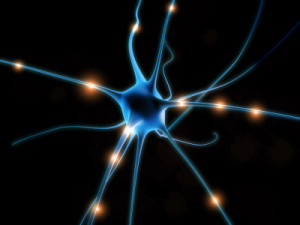Every Christian who decides on a stance to take on the mind-body issue is going to have to live with the fact that there will be certain “problem texts” in the Bible that appear to conflict with the position they take. As a physicalist, I think there is a very small number of such texts for my view, and I think there are plausible explanations for all of them (for example Jesus’ words to the criminal on the cross Luke 23:43, which I discussed recently). What one hopes to do is to settle on a view that has fewer problems than all others, problems that have an explanation in sight.
I think that traditional Cartesian/platonic dualism has a real problem, therefore, when it comes to 1 Corinthians 15, as I think it contains a problem for dualism – a problem with no real solution that I can see. The chapter is a decent size, so I won’t reproduce it here, but go ahead and read it first to make sure I’m representing what it says faithfully. The subject is the resurrection of the dead, and it arises because some of those in the church in Corinth had said that there will be no resurrection. The Apostle Paul makes a number of comments on this, one of which concerns my point here. In doing so he indicates that he cannot possibly have been a dualist.


 At last, the series ends. Here is part five of the series on the mind/body problem. This episode steps completely away from analytical philosophy and is an overview of some of the biblical material that bears on the subject. Although it’s a comparatively long episode (just under fifty minutes), it’s still a very sketchy overview. The subject is a large one, and at best I can get the ball rolling and encourage you to look further. Enjoy. 🙂
At last, the series ends. Here is part five of the series on the mind/body problem. This episode steps completely away from analytical philosophy and is an overview of some of the biblical material that bears on the subject. Although it’s a comparatively long episode (just under fifty minutes), it’s still a very sketchy overview. The subject is a large one, and at best I can get the ball rolling and encourage you to look further. Enjoy. 🙂 Here’s part three of the series on philosophy of mind. We’ve moved from dualism in part one through to physicalism in this episode. I look at epiphenomenialism, reductionism, nonreductive physicalism and a constitution view.
Here’s part three of the series on philosophy of mind. We’ve moved from dualism in part one through to physicalism in this episode. I look at epiphenomenialism, reductionism, nonreductive physicalism and a constitution view. Here it is, part two of the series on philosophy of mind, In Search of the Soul. In this episode I introduce the viewpoint called emergentism, and I explore the argument for dualism from free will.
Here it is, part two of the series on philosophy of mind, In Search of the Soul. In this episode I introduce the viewpoint called emergentism, and I explore the argument for dualism from free will. In this episode of the Say Hello to my Little Friend podcast I start a four part series on philosophy of mind. I know I recently said that it would be a three part series, but hey, even four parts isn’t really enough to give the subject the full treatment it deserves. In part one I start with the dualist end of the spectrum. Today it’s Cartesian/Platonic dualism, which I take to be the most popular variety.
In this episode of the Say Hello to my Little Friend podcast I start a four part series on philosophy of mind. I know I recently said that it would be a three part series, but hey, even four parts isn’t really enough to give the subject the full treatment it deserves. In part one I start with the dualist end of the spectrum. Today it’s Cartesian/Platonic dualism, which I take to be the most popular variety.